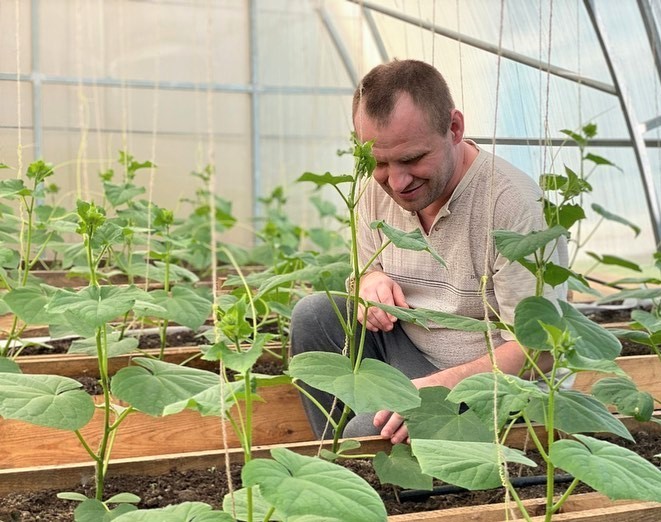Human health depends largely on a healthy diet. Recognizing the role of organic production in maintaining health of people, the European Union outlined plans to reduce the use of chemical pesticides by 50%, mineral fertilizers by 25% and increase the share of organic farming in Europe’s agricultural structure to 25% by 2030.
Organic production is applied in 181 countries, and the global market for organic products is estimated at $115 billion.
In Kazakhstan, out of 22 million hectares of land used for agricultural purposes, only 1% is used for organic production, mainly grain crops and oilseeds intended for export. Moreover, there is no single certified organic producer in the fruit and vegetable sector, despite the huge potential and growing demand, both in the domestic and foreign markets.
The Kazakhstan Federation of Organic Agriculture Movements - KAZFOAM, the Kazakh research institute of Agricultural Economics and Development of Rural Areas within the European Union project "ODAC Enbekshikazakhsky Alliance for Sustainable Economic and Human Development" and UNDP piloted the initiative to organize workshops and consultations on organic production in various villages of the Enbekshikazakh district of Almaty region.
The workshop triggered the creation of small and medium-sized groups of vegetable producers interested in organic production. However, the high cost of organic standards certification is the main obstacle for organic farmers that they cannot solve on their own.
Today we held a workshop to present the tools that allow solving this issue through group certification, which entails that the cost of organic standards’ certification is shared among several producers. This model of certification has already been used by more than a million farmers around the world.
While Kazakhstan has no experience in organic certification of a group of producers, the initiative might boost the country's organic sector development.
The termination of the use of chemical fertilizers can reduce crop yield in the early years. However, this problem can be solved with the help of the innovative enzyme Agroflorin. This fertilizer helps clean the soil from chemical pollution, restore fertility, strengthen plants’ immunity and increase crop yield, even after dropping chemical use.
During the seminar, the participants also got acquainted with the existing biogas plant in the Agribusiness Center, which allows getting gas from manure for heating greenhouses and organic fertilizer.

 Locations
Locations





